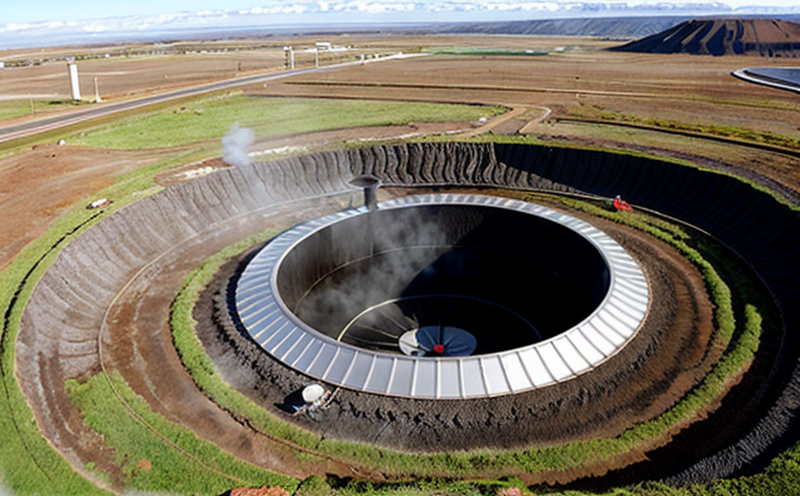ASTM E1921 Fracture Toughness Testing of Geothermal Steel Materials
The ASTM E1921 standard is a critical tool in ensuring the integrity and durability of materials used in geothermal energy systems. These systems operate under extreme conditions, including high temperatures and pressures, making it essential to test the fracture toughness properties of steel components thoroughly.
Fracture toughness testing evaluates how well a material resists crack propagation. In the context of geothermal applications, this is crucial because any cracks or defects in critical structural components could lead to failure under operational conditions. The ASTM E1921 method uses a compact tension specimen and a specific loading configuration designed to simulate the stress conditions experienced by materials in geothermal environments.
The testing process involves several key steps: first, the specimens are prepared according to strict specifications outlined in ASTM E1921. These specimens must be cut from the actual material used in the system to ensure accurate representation of its properties under test. Once prepared, they undergo a series of loading tests using high-precision mechanical testing machines capable of simulating the thermal and mechanical stresses found in geothermal installations.
The results provide valuable insights into the material's ability to withstand stress without failing catastrophically. This information is vital for quality managers and compliance officers responsible for ensuring that all components meet rigorous safety standards before deployment. Additionally, research and development (R&D) engineers rely on these test data when designing new materials or improving existing ones.
For procurement professionals involved in sourcing materials for geothermal projects, understanding the nuances of ASTM E1921 helps them make informed decisions about vendor selection based on proven performance metrics derived from this testing method. By adhering to this standard, manufacturers can demonstrate compliance with international quality assurance practices and build trust among end users.
The importance of accurate fracture toughness measurements cannot be overstated when it comes to safeguarding both personnel safety and operational efficiency in geothermal operations. Proper implementation of ASTM E1921 ensures that only high-quality materials are used, thereby reducing the risk of costly downtime or accidents due to component failures.
Benefits
- Absolutely critical for ensuring safety and reliability in extreme environments
- Provides objective data supporting material performance under stress conditions
- Supports regulatory compliance with international standards like ASTM E1921
- Promotes longevity of geothermal components by identifying potential weaknesses early
- Enhances overall system efficiency through informed decision-making based on test results
Eurolab Advantages
At Eurolab, we pride ourselves on delivering exceptional service and expertise when it comes to ASTM E1921 fracture toughness testing for geothermal steel materials. Our state-of-the-art facilities are equipped with the latest technology and experienced personnel who understand both the theoretical aspects of this standard as well as its practical applications.
We offer several advantages over other laboratories:
- Comprehensive understanding of ASTM E1921, ensuring accurate and reliable results
- Precision equipment tailored specifically for geothermal materials testing
- Experienced technicians with specialized knowledge in this field
- Quick turnaround times without compromising on quality
- Complete documentation and reporting services to meet all your compliance needs
Partnering with Eurolab means you can trust us to provide top-notch testing that not only meets but exceeds industry expectations.
Use Cases and Application Examples
| Use Case | Description |
|---|---|
| Component Integrity Assurance | Testing ensures that all parts used in geothermal systems are capable of withstanding high temperatures and pressures without failure. |
| New Material Development | Absolutely essential for R&D teams looking to innovate within the geothermal sector by validating new materials before commercialization. |
| Supplier Evaluation | Provides objective data allowing quality managers and procurement officers to evaluate suppliers based on material performance metrics. |
| Application Example | Description |
|---|---|
| Turbine Blades | Testing turbine blades ensures they can operate safely and efficiently under the harsh conditions of geothermal power plants. |
| Pipe Systems | Ensures pipe systems used in geothermal extraction are robust enough to handle extreme pressures without leaking or bursting. |
| Casing Materials | Verifies that casing materials used around wellbores can withstand the corrosive nature of geothermal fluids over long periods. |





